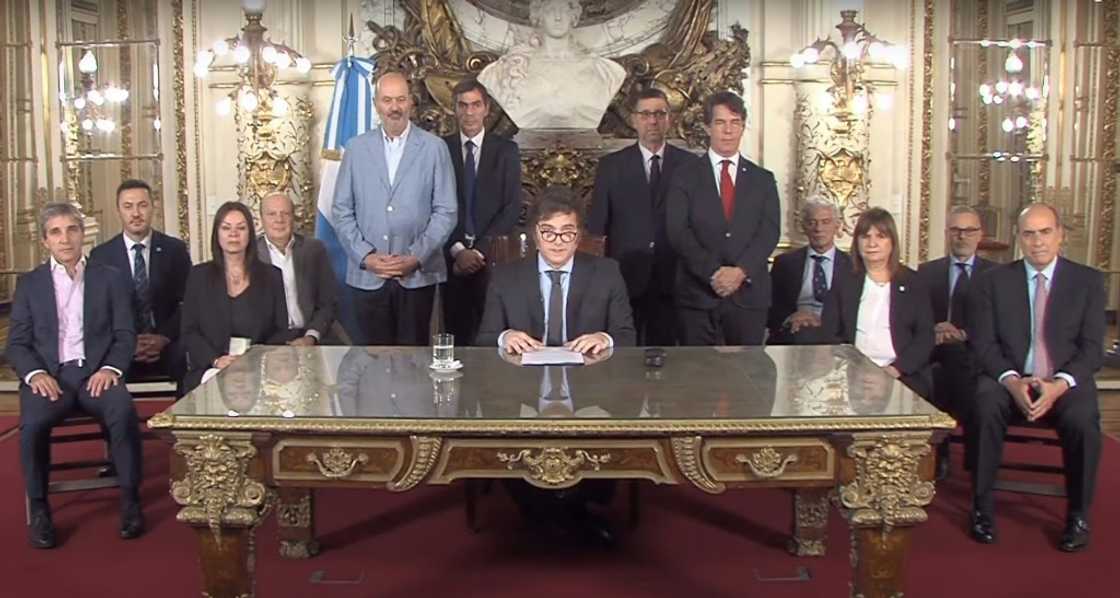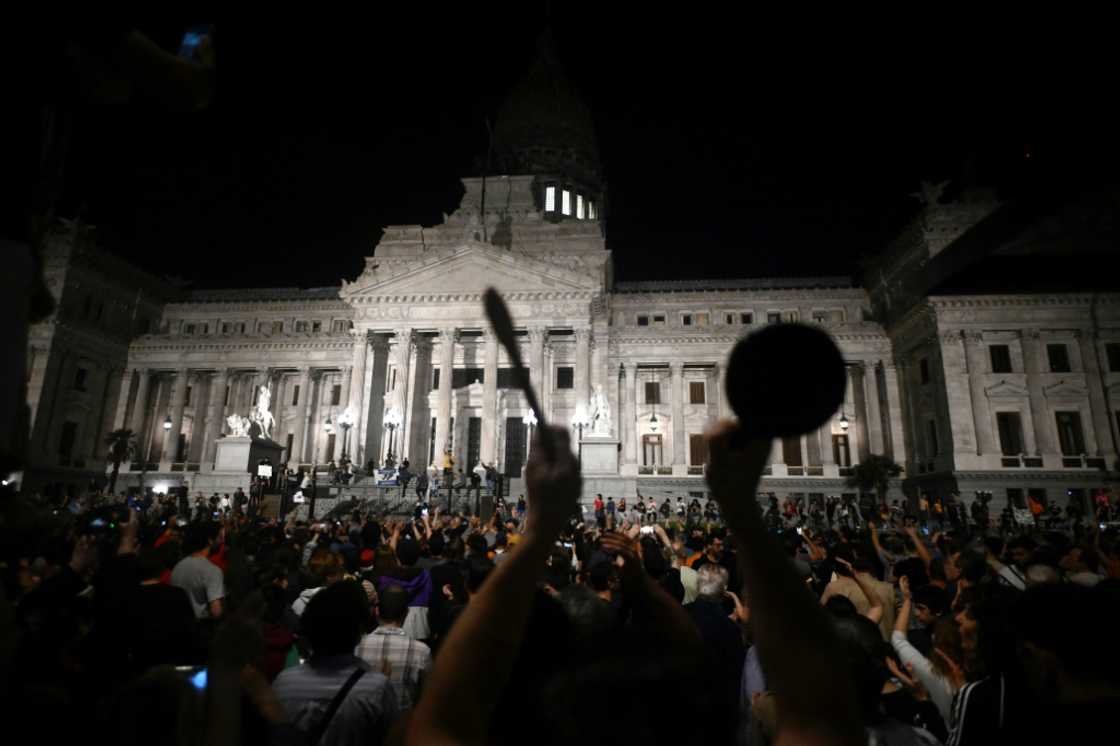Argentina's Milei orders major deregulation of economy

Source: AFP
Argentina's new leader Javier Milei unveiled Wednesday a series of measures to deregulate the country's struggling economy, eliminating or changing more than 300 rules via presidential decree, including on rent and labor practices.
"The goal is to start along the path to rebuilding the country... and start to undo the huge number of regulations that have held back and prevented economic growth," Milei said in a televised speech from the presidential palace, flanked by his cabinet.
Latin America's third-biggest economy is on its knees after decades of debt and financial mismanagement, with inflation surpassing 160 percent year-on-year and 40 percent of Argentines living in poverty.
Milei, who was elected last month and took office 10 days ago, has pledged to curb inflation, but warned that economic "shock" treatment is the only solution and that the situation will get worse before it improves.
Among the changes announced Wednesday are the elimination of a law regulating rent, as well as rules preventing the privatization of state enterprises.
Milei also announced a "modernization of labor law to facilitate the process of creating real jobs" and a series of other deregulatory measures affecting tourism, satellite internet services, pharmaceuticals, wine production and foreign trade.
Following the speech, thousands of people converged on the streets near the Congress to voice their discontent.
Protesters banged pots and pans, climbed gates and waved the national flag.
"I am here because I am terrified by the decree," Nicolas Waiselbaum, a 48-year-old teacher, told AFP.
Leopoldo Maldonado, a 25-year-old student, said "the measures are very negative."
"I'm especially worried about the rent law and the labour reform. It is already very complicated for young people to get a stable job," he said.

Source: AFP
The decree, published in the government gazette at midnight, must be assessed by a joint committee of lawmakers from both chambers of the legislature within 10 days.
Constitutional law expert Emiliano Vitaliani told AFP that the decree could only be overturned if rejected by both the lower House and the Senate.
Milei's far-right Libertad Avanza party only has 40 seats in the 257-member lower house and seven senators out of 72. But Milei's margin improves if the members of the center-right Together for Change coalition are taken into account.
'Shock' therapy for economy
For political analyst Lara Goyburu, Milei's moves are not surprising, given how he campaigned for the presidency. But she told AFP that his use of an emergency decree was unusual.

Source: AFP
The 53-year-old libertarian and self-described "anarcho-capitalist" has said spending cuts equivalent to five percent of gross domestic product are needed.
Before Wednesday's announcement, his administration had already devalued Argentina's peso by more than 50 percent, and announced huge cuts in generous state subsidies of fuel and transport from January.
Milei has also announced a halt to all new public construction projects and a year-long suspension of state advertising.
Last week's measures to tackle inflation were welcomed by the International Monetary Fund, to which Argentina owes $44 billion.

Source: AFP
"Over the last century, politicians took pains to expand the power of the state, to the detriment of ordinary Argentines," Milei said Wednesday.
"Our nation, which in the 1920s was the world's top power, has been involved in a series of crises over the last 100 years that all stem from the same cause: budget deficits."
Milei won a resounding election victory in November, surfing a wave of fury over decades of recurrent economic crises, marked by debt, rampant money printing, inflation and fiscal deficit.
Argentines remain haunted by hyperinflation of up to 3,000 percent in 1989-1990 and a dramatic economic implosion in 2001.

Source: AFP
Before Milei's speech, thousands of people protested against his government in Buenos Aires, waving banners and chanting slogans near the Casa Rosada presidential palace.
Their route through the city center was lined by military police and other security personnel, including police in full riot gear, in a show of force that protest organizers criticized as an attempt at provocation.
"This reminds me of the dictatorship" of 1976 to 1983, said Eduardo Belliboni, leader of leftist movement Polo Obrero.
Source: AFP




